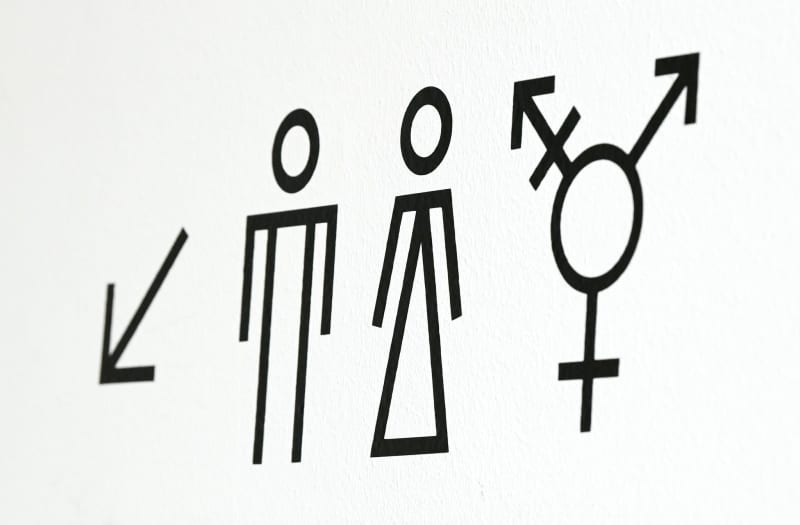
DPA

Gender non-conformity has become a hot-button issue for many people. It often arises from what’s medically known as gender dysphoria, a feeling of discomfort or distress when a person’s gender identity doesn’t match their gender assigned at birth.
Children with this feeling can be prescribed “puberty blockers,” also called pubertal blockers or (synthetic pituitary) hormone blockers, to put off puberty and “give them more time to decide” whether to fully transition to their experienced gender, says Jakob Maske, spokesman for the Cologne-based Professional Association of Paediatricians (BVKJ).
Detractors of the drugs, gonadotropin-releasing hormone (GnRH) analogues, see them as the outgrowth of a dangerous new trend, and their supporters as a legitimate way to spare gender-nonconforming kids the intense stress often caused by the physical changes of puberty.
GnRH analogues are synthetic drugs modelled after GnRH, which acts upon its receptors on cells in the pituitary gland, stimulating the release of hormones that, in turn, stimulate the production and release of sex hormones by the testicles in men and ovaries in women. They bind to the receptors, thereby blocking them.
According to the BVKJ, GnRH analogues are “very rarely” prescribed. Specific numbers aren’t available.
Maske contradicts critics who say doctors prescribe the drugs too liberally. “I think they’re prescribed very conscientiously,” he tells dpa. “The decision is made by a team that includes the child, the parents and at least two doctors from different disciplines. I don’t think it’s taken lightly.”
He says the drugs aren’t harmless, and that stunted bone growth is one side effect. While the effects of puberty blockers are reversible – when kids stop taking them, their body goes through puberty normally – “the [lost] growth may not be recuperable,” Maske points out.
The drugs can also affect mood, circulation and, in particular, libido, he notes, calling the last-named effect “counterproductive” if the aim is to pause puberty while the child decides whether to accept their biological gender. Feeling no sexual desire for the opposite sex, he says, tends to bolster their belief that their assigned gender isn’t right.
Adolescents who interrupt puberty with GnRH analogues but later decide to stick to their biological gender appear to be the exception. In a Dutch study published in October in The Lancet Child & Adolescent Health journal, 704 of 720 young people who had started taking the drugs in adolescence went on to transgender hormone therapy.
Does this mean that only those who really needed the drugs got them, or that the drugs paved the way to a gender transition that the patients otherwise wouldn’t have made?
Study co-author Dr Marianne van der Loos, an internal medicine physician at the Centre of Expertise on Gender Dysphoria at Amsterdam University Medical Centres (UMC), is quoted by The Lancet as saying the findings are “reassuring in the context of recent increased public concern regarding regret of transitioning.”
In 1998, The Lancet says, the Netherlands introduced a new treatment protocol for young people under 18 diagnosed with gender dysphoria. After a “thorough diagnostic evaluation,” they’re offered puberty blockers to pause physical changes that can be stressful to them, giving them time to “explore their gender identity.”
Those who continue to desire to transition medically can subsequently begin transgender hormone treatment after age 15–16.
Puberty blockers for young people under 18 have recently become a subject of public debate, and in some countries, such as the US and Britain, legal measures have been taken to ban or limit their use, The Lancet notes. It concedes that “although short-term studies have demonstrated the beneficial effects of puberty-suppression treatment for adolescents’ mental and physical health, long-term follow-up data are lacking.”
Maske is non-committal on whether increased gender change is merely a passing fashion or that more people who truly have a gender-identity conflict are now unwilling to “live the rest of their lives in the wrong body.” What’s important, he says, is that “every child needs individual counselling before beginning [puberty-suppression] treatment and must then be closely monitored.”


Recommended Comments
There are no comments to display.